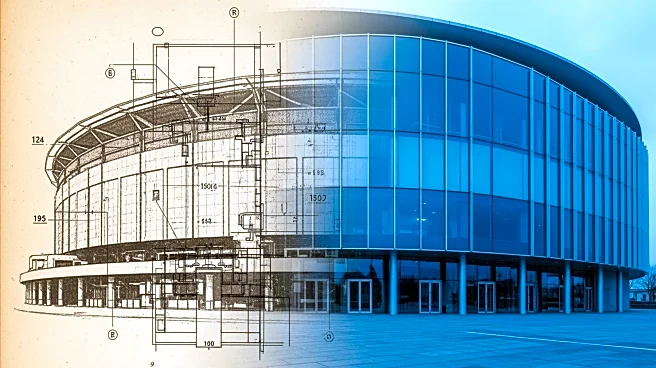Rapid Read • 7 min read
German Chancellor Friedrich Merz has invited President Trump, Ukrainian President Volodymyr Zelensky, NATO's chief, and several European leaders to virtual meetings ahead of a U.S.-Russia summit. The discussions aim to address concerns over potential land swaps between Ukraine and Russia, which could be decided without European or Ukrainian input. The virtual talks will focus on options to pressure Russia and prepare for possible peace negotiations, emphasizing territorial claims and security issues. European leaders are worried that Moscow might portray Ukraine as inflexible, potentially leading to unfavorable outcomes for Kyiv.
AD
The virtual meeting underscores the geopolitical tensions surrounding the U.S.-Russia summit and the importance of European involvement in discussions about Ukraine's territorial integrity. The potential for land swaps raises significant concerns about sovereignty and international law, with implications for regional stability and security. The involvement of European leaders highlights the collective effort to ensure that any agreements respect Ukraine's territorial rights and do not reward aggression. The outcome of these discussions could influence future diplomatic relations and security arrangements in Eastern Europe.
The U.S.-Russia summit in Alaska will be closely watched for any agreements or statements regarding Ukraine's territorial status. European leaders and Ukraine will likely continue to advocate for a ceasefire as a prerequisite for negotiations, emphasizing the need for Ukraine's participation in any land swap discussions. The virtual meeting may set the stage for further diplomatic efforts to resolve the conflict, with potential implications for NATO's role and Europe's security strategy.
The situation highlights the complex interplay between international diplomacy, territorial sovereignty, and security guarantees. The discussions may prompt broader debates on the ethical and legal dimensions of territorial negotiations and the role of international law in conflict resolution. Long-term, the outcome could influence the geopolitical landscape in Eastern Europe, affecting alliances and regional power dynamics.
AD
More Stories You Might Enjoy












